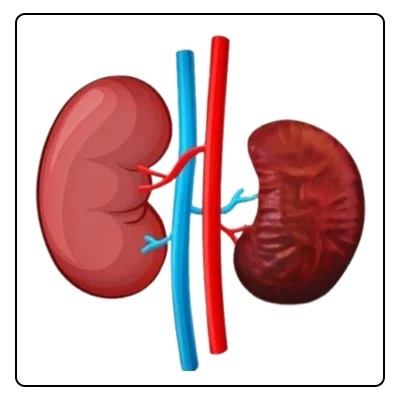Kidney shrinkage also known as kidney atrophy means that the kidney is smaller than the average size. A normal adult kidney is usually 10–12 cm long, 3–5 cm wide, and 3 cm thick, and weighs 150–260 g.
Kidney shrinkage or kidney atrophy may be due to low blood supply to the kidney, loss of nephrons, chronic infection , blockage of the kidney or may be congenital called kidney hypoplasia.
Prevalence:
According to the study published in Lancet Journal in march 2024, the prevalence of chronic kidney disease population worldwide is 10%. Most of the kidney shrinkage or kidney atrophy happens only due to chronic kidney disease only.
Renal hypoplasia may be congenital due to poor development of kidneys or may develop during lifespan. It is very difficult to prove the number of the population having renal hypoplasia since Birth due to lack of proper invasive diagnosis (ultrasonography).
Book Appointment for Ayurvedic Consultation: Ayurvedic Treatment for Kidney Shrinkage
Congenital or severe reduction of nephrons in case of renal hypoplasia or dysplasia is the main cause of end stage renal disease in childhood .
Risk Factors:
- Systemic atherosclerosis
- Acute and chronic pyelonephritis
- Urinary tract obstruction
- Diabetes
- Ageing
- Congenital renal hypoplasia
- Hypertension
- Immune mediated kidney disease
Symptoms: Sometimes there are no symptoms of kidney shrinkage especially if the cause is slow and over many years.
- Frequent urination
- Frothy urine
- Pain in abdomen
- Pain in passing the urine
- Burning micturition
- Weakness
- Dyspnoea
- Itchy skin
- Swelling in feet or over the whole body
- Nausea and vomiting
- Loss of appetite
- Disturbed sleep
Diagnosis:
- Imaging Test: Ultrasonography, Computed Tomography ( CT-scan ), Magnetic Resonance Imaging ( MRI ) are done to evaluate the size, position and damage to the kidney.
- Blood Tests: Blood tests like kidney function tests are used to evaluate the level of creatinine, urea, uric acid etc to know the damage that is being caused to the kidney and evaluating the eGFR ( estimated glomerular filtration rate ).
- Urine Test: Protein ( Albumin ) loss in the urine is one of the first signs to evaluate kidney damage.
Management of Kidney Shrinkage:
- Diet and Lifestyle: Managing Diet and lifestyle is the first step to slow down kidney damage, kidney friendly foods, proper amount of water consumption, avoiding stressful work or weight lighting and proper sleep is the key to fight kidney damage.
- Hospital Treatment: Managing the levels of phosphates and potassium in the blood by using prescribed medication is a must. To avoid metabolic acidosis, use of sodium bicarbonate and managing the blood hemoglobin and RBC medication and blood transfusion if required
- Dialysis: Maintaining the Nitrogenous waste in blood to avoid complications, regular visit for dialysis to remove creatinine, urea, uric acid and extra water is a must.
- Surgical intervention: kidney transplant, in case of failure of every treatment protocol can be done to avoid damage to the body.
- Ayurvedic Intervention: Using Ayurvedic way of treatment can be an alternate method to recover the damage that is caused to kidney by balancing tridosha and working on the principle of rejuvenation treatment ( rasayan treatment ) may help to slow down the damage and maintaining good quality life by improving immunity.
Contact Us:
Aksaayurveda
Address: 1 FLOOR, PVT.449 KH. NO. 137/5/11, SANT NAGAR, BURARI, NORTH WEST DELHI, 110084
Email: info@aksaayurveda.com
Call Now: +91 88261 11667
Follow on Youtube: https://www.youtube.com/@aksaayurveda
Follow on Facebook: https://www.facebook.com/jeevaherbsindia
Follow on Instagram: https://www.instagram.com/aksaayurveda/
